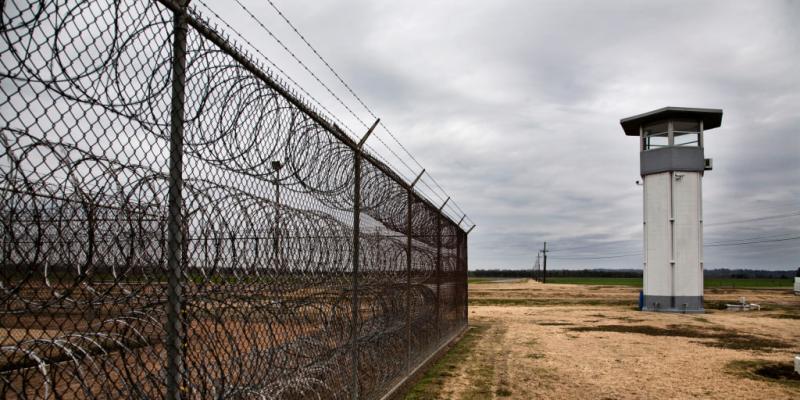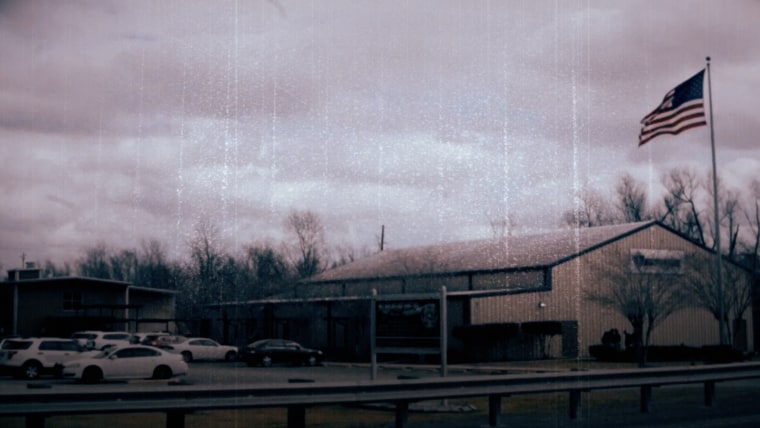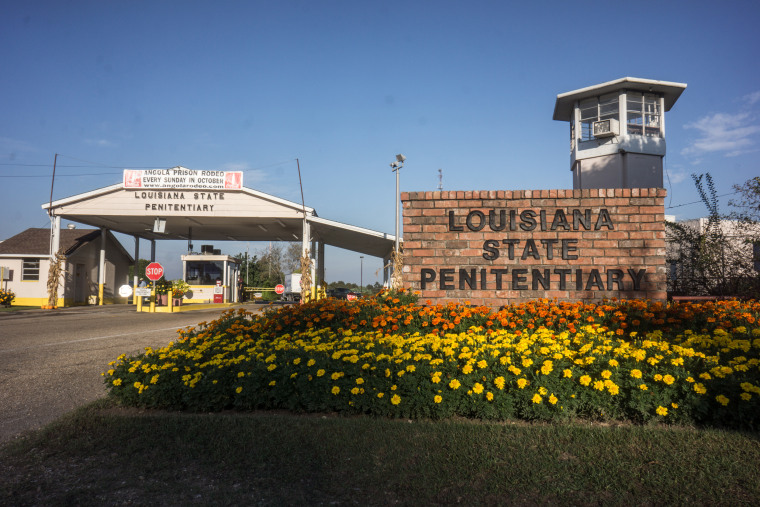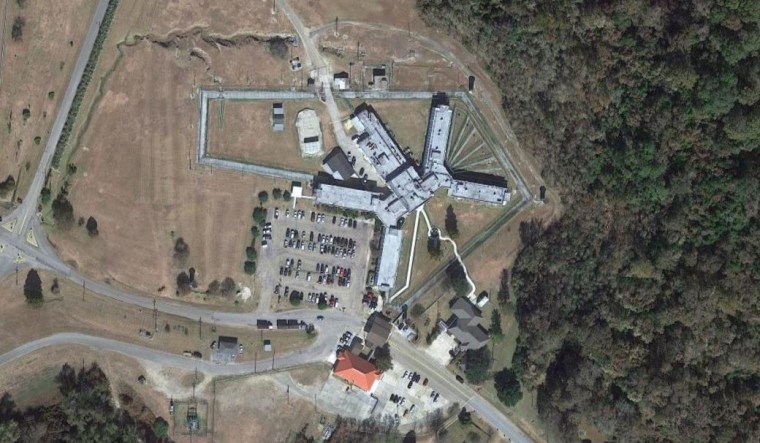Louisiana is sending youth to Angola prison, which experts say could violate federal law



Following a slew of alarming headlines about violence, mismanagement and frequent escapes from Louisiana's juvenile lockups, the state's governor offered a new solution this week: temporarily moving teens to the notorious Angola prison for adults.
The decision tramples modern principles of juvenile justice and could lead to violations of federal law, youth advocates, lawyers and experts in juvenile corrections say.
"It's abhorrent," said Glenn Holt, a former top official in Louisiana's juvenile justice system who now serves as the deputy director of Arkansas' juvenile justice agency.
"Moving kids to your adult maximum security prison campus, where you send adults to die," he said, "is the worst juvenile justice policy decision probably ever made in modern times."
Gov. John Bel Edwards, a Democrat, announced the decision to move the teens to the Louisiana State Penitentiary at Angola on Tuesday after a series of chaotic fights, injuries and breakouts from the Bridge City Center for Youth near New Orleans, including an alleged carjacking by an escaped teen on Sunday during which a man was shot. Residents in the surrounding community say they're living in fear and have called for the facility to be shut down.

Shackles and solitary: The Louisiana juvenile facility 'opened in a shroud of secrecy'
At a news conference, Edwards stressed that the Angola move is temporary, aimed at reducing the population at the troubled Bridge City until more secure youth facilities can be built or renovated. The state has too many teens in its care to consider closing Bridge City entirely, he said.
"I understand that this is not the perfect or the ideal plan," Edwards said. "But I do believe that the situation demands an immediate response and these are the best options we currently have to ensure the safety of the youth, the staff and the community."
Roughly 25 teens will be housed in a building near the entrance of the massive Angola complex as soon as next month, after some renovations, Edwards said. The building will be overseen and staffed by employees of the state's Office of Juvenile Justice (OJJ).
"They will not have contact with adult inmates and will continue to receive all of the services they currently receive through OJJ, including education," Edwards said.
Federal law requires that juveniles be separated — by both sight and sound — from adult prisoners. The goal of the juvenile justice system is to rehabilitate youths so they can return to their communities, not to punish them.
 Louisiana officials say juveniles will be held in a separate building from adult prisoners. Giles Clarke / Getty Images file
Louisiana officials say juveniles will be held in a separate building from adult prisoners. Giles Clarke / Getty Images file
Angola's 18,000 acres make it one of the largest prison campuses in the world. It has enough space between buildings that the teens can be held far from adult prisoners, but advocates and experts questioned whether the state would actually be able to keep youths separate.
"There are common facilities, like the infirmary," said Hector Linares, a law professor at Loyola University New Orleans. "If a youth gets sick or gets injured, how are they going to maintain sight and sound separation for youth that need to go to the infirmary?"
If teens are outside getting exercise, he asked, how will the state make sure they don't encounter prisoners called trustees who do the bulk of the work to maintain the buildings and grounds at Angola and prepare and deliver food?
"They're asking us to just trust them that they're doing this legally and properly," Linares said, but he noted that both the Office of Juvenile Justice and the state's Department of Public Safety & Corrections have troubled histories. Both have been the subject of federal interventions in recent decades due to civil rights violations. "They have to show us how they plan to meet the requirements of these laws, not just say, 'Oh, it's a separate building. Trust us.'"
During Tuesday's news conference, state officials said Angola prisoners will not be providing maintenance or other services in the reception center building where the teens will be housed. Instead, the state is offering housing on or near the Angola campus for juvenile justice staff who agree to temporarily relocate to the penitentiary in a rural stretch of northern Louisiana near the Mississippi line. The remote prison, a former plantation surrounded on three sides by the Mississippi River, is about two-and-a-half hours from New Orleans.
"In terms of the questions regarding the cleaning, staffing and educational offerings — this will be managed by OJJ and not Corrections," Christina Stephens, a spokeswoman for Edwards, wrote in an email. "DOC has found a place to house the youth, but OJJ will be in charge of their care. The youth will be in the OJJ system, they will simply be temporarily housed elsewhere."
Last year, hamstrung by severe staffing issues in its juvenile facilities, the state responded to violence and escapes by quietly moving teens it considered troublemakers into the Acadiana Center for Youth at St. Martinville. Boys as young as 14 were held there in solitary confinement nearly around-the-clock for weeks and were deprived of education and other legally required services.
 Buildings near the entrance to the Louisiana State Penitentiary at Angola. The prison is in a remote area near the state's border with Mississippi. Google Maps
Buildings near the entrance to the Louisiana State Penitentiary at Angola. The prison is in a remote area near the state's border with Mississippi. Google Maps
An investigation by NBC News, The Marshall Project and ProPublica discovered that the teens, who were shackled with handcuffs and leg irons when they left their cells to shower, responded violently, hurling feces at guards and using broken pieces of beds and light fixtures to hack holes in their cells large enough to escape.
The investigation helped lead to the passage of a new law limiting solitary confinement for juveniles in Louisiana that goes into effect next month. Bill Sommers, head of OJJ, acknowledged in a legislative hearing that he was not satisfied with how the facility was being run.
This year, the state tried sending some of the teens it had trouble with to facilities in Alabama and other states, but they were sent back after an altercation landed a staff member in the hospital.
In their latest effort, Louisiana officials say the teens will be housed in the reception center, a building near the entrance to the Angola campus that has had various uses over the years. Most recently, it housed female prisoners who were displaced when a women's prison flooded. Before that, it got its reception center name by briefly housing inmates when they arrived at Angola. Decades ago, two former prisoners and an advocate said the facility housed death row inmates.
Stephens said it was her understanding that the teens would not be housed in the same area that had been used for death row, but she noted that the move hasn't happened yet and many details are still being worked out.
The Louisiana Department of Public Safety & Corrections referred questions to the governor's office. The Office of Juvenile Justice responded to questions by sending a link to the governor's news conference.
Rachel Gassert, an advocate with the Louisiana Center for Children's Rights, which filed a complaint that documented the state's failure to provide education for the first several months after St. Martinville opened, questioned whether the state can actually provide services like special education at Angola.
"In the past we have seen that the state has failed to provide the services that they're supposed to give them," she said of the teens in state lockups. "Failed to give them an education, failed to keep them or the people around them safe, and this is just another step in the wrong direction toward creating worse outcomes for these kids and for the community that they're going to return to."
Advocates and experts say it's clear that Louisiana needs to do something to respond to the crisis and put a stop to escapes but argued that moving teens to Angola is not the answer.
"It's cruel," said Holt, the former Louisiana juvenile justice official. He said that informing teens they're headed to the infamous state prison — accused of abuse and brutality, where an inmate died this week following a fight with another prisoner — would cause "mental anguish" for young people who are already traumatized.
The vast majority of youth in the Louisiana juvenile justice system are Black teens, including many who have mental health issues and have experienced trauma.
Louisiana is among the majority of states that have dramatically reduced the number of juveniles in custody, meaning the ones who remain are those with the greatest needs.
If the state wants to put an end to violence in its facilities, it needs to support these teens, not just lock them up behind higher walls, said Melissa Sickmund, the director of the National Center for Juvenile Justice, which is the research division of the National Council of Juvenile and Family Court Judges.
"You are having escapes and fights. Why?" she said. "This facility is such a bad place that kids are desperate to get away from it. If we're trying to rehabilitate kids, they can't be treated like that. The conditions of their confinement need to improve."



I guess on the bright side, some kids may be reunited with Dad...
Fresh meat.